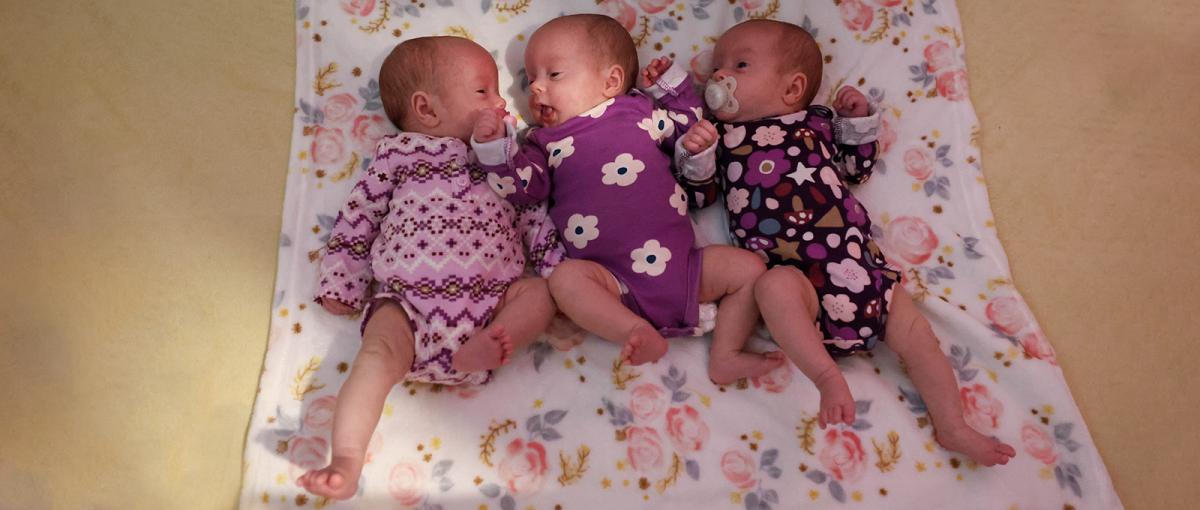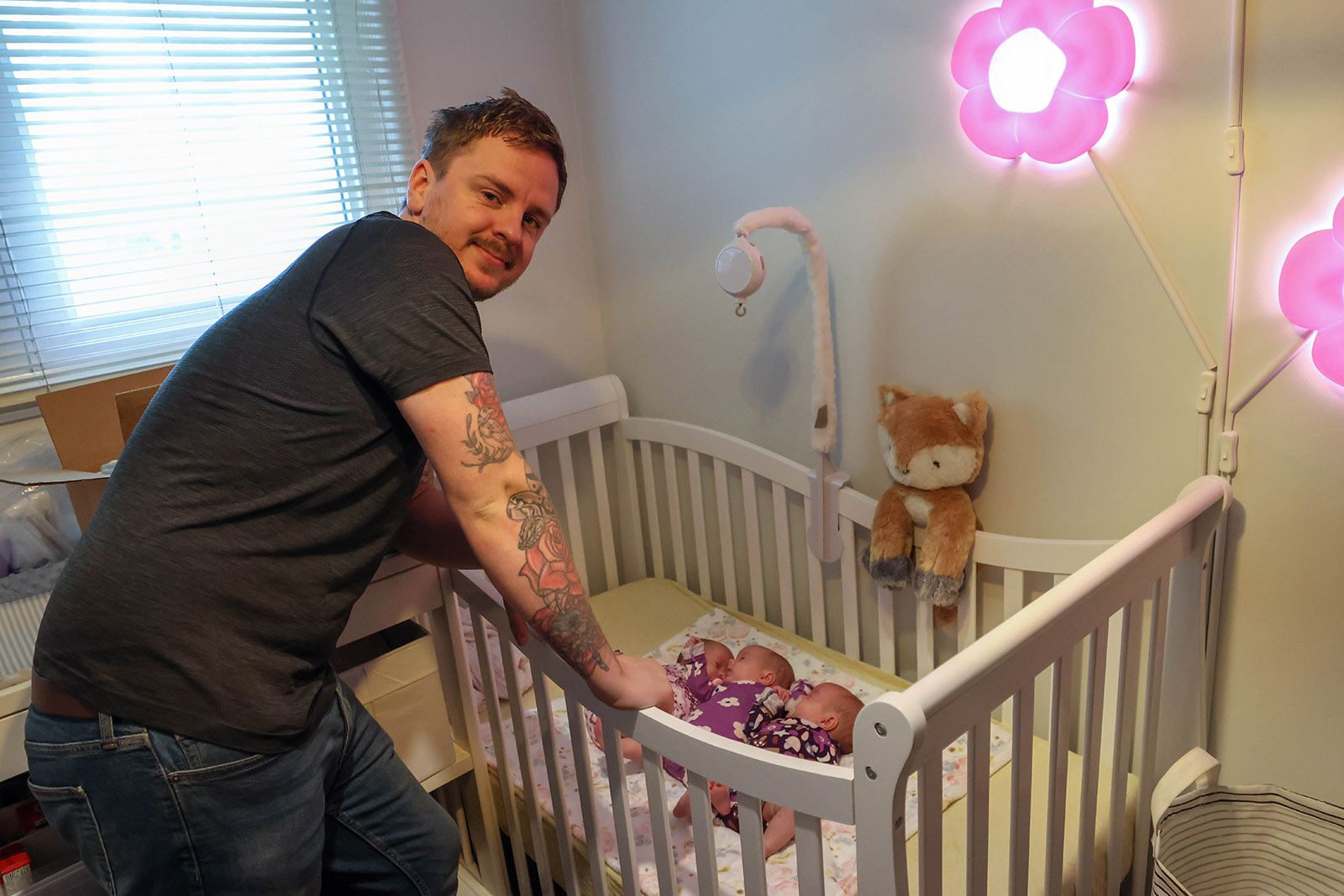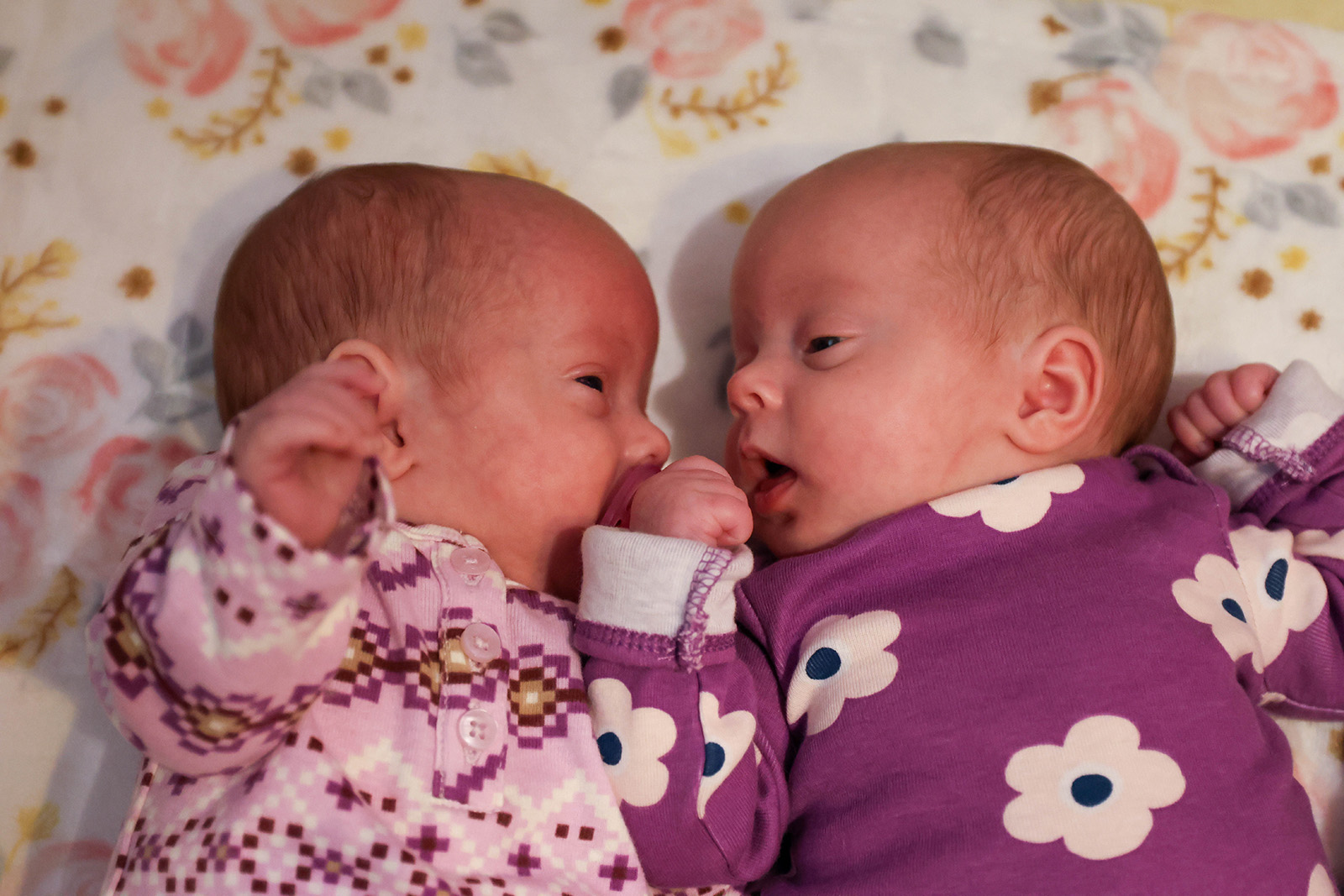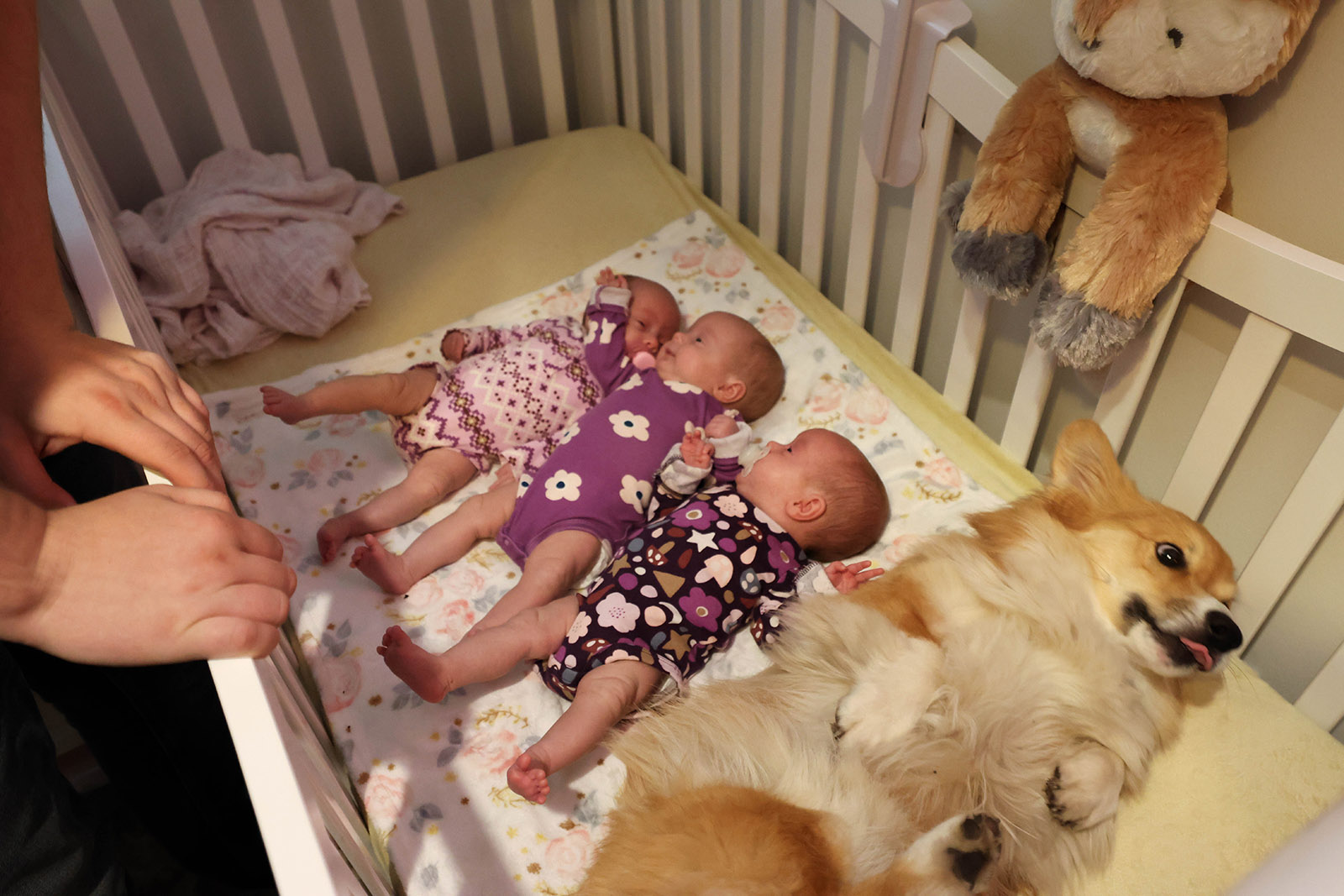Thorough planning leads to safe delivery of triplets

August 17, 2023
By Peter Rybar, social media and storytelling advisor, Covenant Health
Thanks to weeks of planning and collaboration by staff, Taylor and Alyssa Borchuk were able to safely deliver triplets at the Misericordia Community Hospital.
It was an overwhelmingly positive experience, says Alyssa. “I felt like a celebrity there, and I still do. It was a very special feeling knowing the amount of planning that went into delivering our girls safely.”
Born on Father’s Day, June 18, Evelyn, Halley and Millie Borchuk are the first set of triplets to be delivered at the Misericordia hospital since the late 1990s. The hospital doesn’t see many of these unique deliveries because most triplets are born prematurely, usually under 30 weeks, and need to be at a site specifically equipped to provide the often-required intensive care. Luckily, the Borchuk babies were at 33 weeks when their time came, meaning the hospital could safely facilitate their delivery and Taylor and Alyssa could have the birth experience they had hoped for.

Taylor Borchuk checks on his three baby girls in their crib
Alyssa specifically requested that her babies be born at the Misericordia because of a personal connection she has with the hospital.
“I was born at the Misericordia, and my great-grandmother worked there as a nurse and passed away there. Once I knew I was pregnant, I was settled on having [the babies] there,” says Alyssa.
After many meetings and detailed planning, staff at the Misericordia were more than ready for the event.
“There was a lot of planning done between the neonatal intensive care unit (NICU) and labour and delivery teams,” says Sara Lemke, unit manager, NICU. “Each baby had their own neonatal team that included a nurse, either a nurse practitioner or a physician, and a respiratory therapist, plus the additional staff brought in for labour and delivery.”
Finding staff to join these functional teams was perhaps the easiest part of the whole planning process.
“We had a lot of excited staff who really wanted to be part of this. We had staff who volunteered to be on call to help with the delivery,” says Sara.
The team came together to ensure that everything needed for three safe births would be readily available when the time came.
“Having that third baby being delivered really made a difference in the equipment we needed,” says Michelle Stadler, unit manager, labour and delivery. “We had to get additional supplies sent up from the medical device reprocessing department to have in the operating room (OR).”
Because three babies were expected, there physically wasn’t the space to have the mom, surgical team, nursing staff and warmers for all three babies in one room, says Michelle.
“We ended up moving the babies to the recovery room instead of keeping them in the OR theatre and made sure we had all of the equipment needed for them there.”

Two of the triplets snuggle together in their crib
The meetings and planning were crucial to ensuring the team was ready for any unforeseen circumstances that could arise during the delivery. As it turned out, the delivery went off without a hitch, says Sara.
“I hate to say that we were perfect … but this was just so well-planned and executed by the teams involved.”
“We always hope for the best and prepare for the worst. We were fully prepared to give the highest amount of intensive care necessary to these triplets. Luckily, they were born at a good weight, and their lungs were healthy, so they didn’t need a lot of intensive care.”
The Borchuks' obstetrician, Dr. Charlene Barnes, who had been with them every step of the way, made sure she was there when it was time for Alyssa’s planned cesarean section.
“Everything went well," says Charlene. “The babies came out uneventfully. I was hoping I would take them out in the right order, and I did. I was hoping I would know which one was A, B and C.”

Ori, one of the Borchuk family dogs, joins the triplets in their crib.
The only hiccup ended up being a very minor technical issue.
“We have a tablet that we use to allow moms to watch the teams working with their babies from the OR, but it failed this time, which was too bad,” says Linda Brad, program manager, women’s and child health. “Instead, we had the grandma taking videos and going back to mom (Alyssa) to show her. We kept them connected that way.”
When all was said and done, the Borchuks’ decision to have their babies at the Misericordia had a big impact on the hospital’s staff.
“We’re a small unit, just 17 funded beds, so that makes us a tight-knit family. These little girls were really special to us, and we’re just thrilled that we could be part of their entry to this world,” says Sara.
The key takeaway from the entire process for staff was the confirmation of their planning and collaboration efforts.
“It’s validating when you do all that work and it pays off. Time is precious right now for everyone, and there were a lot of players that needed to be at the table. It was challenging to co-ordinate that with everyone’s schedules,” says Michelle.
For their part, the Borchuks couldn’t be happier with their decision to deliver at the Misericordia.
“Everyone at the Misericordia was amazing. It felt much more personable. Everyone was so excited and supportive there,” says Alyssa.
“We’re recommending the Misericordia to anybody that we know with incoming babies,” says Taylor.